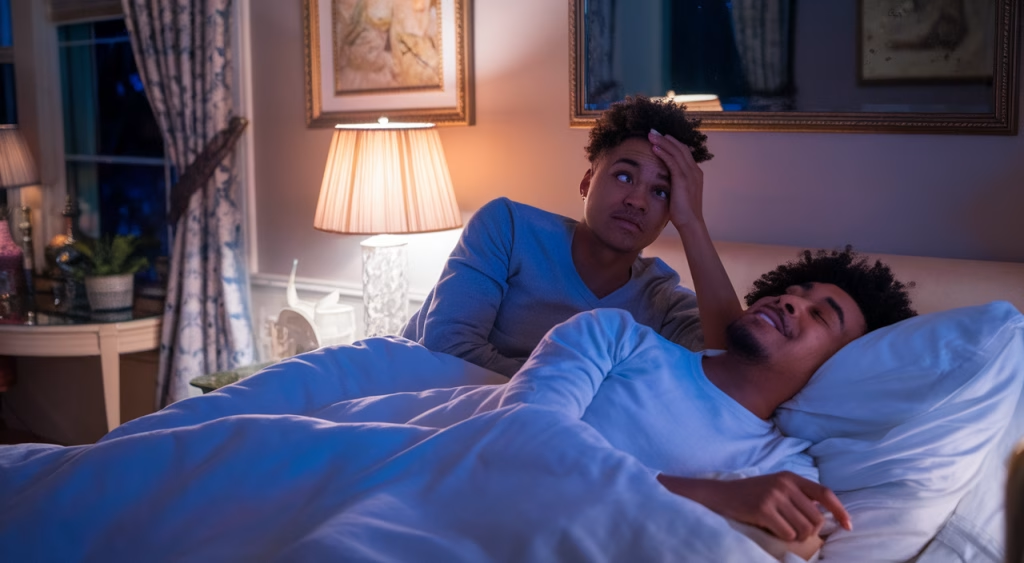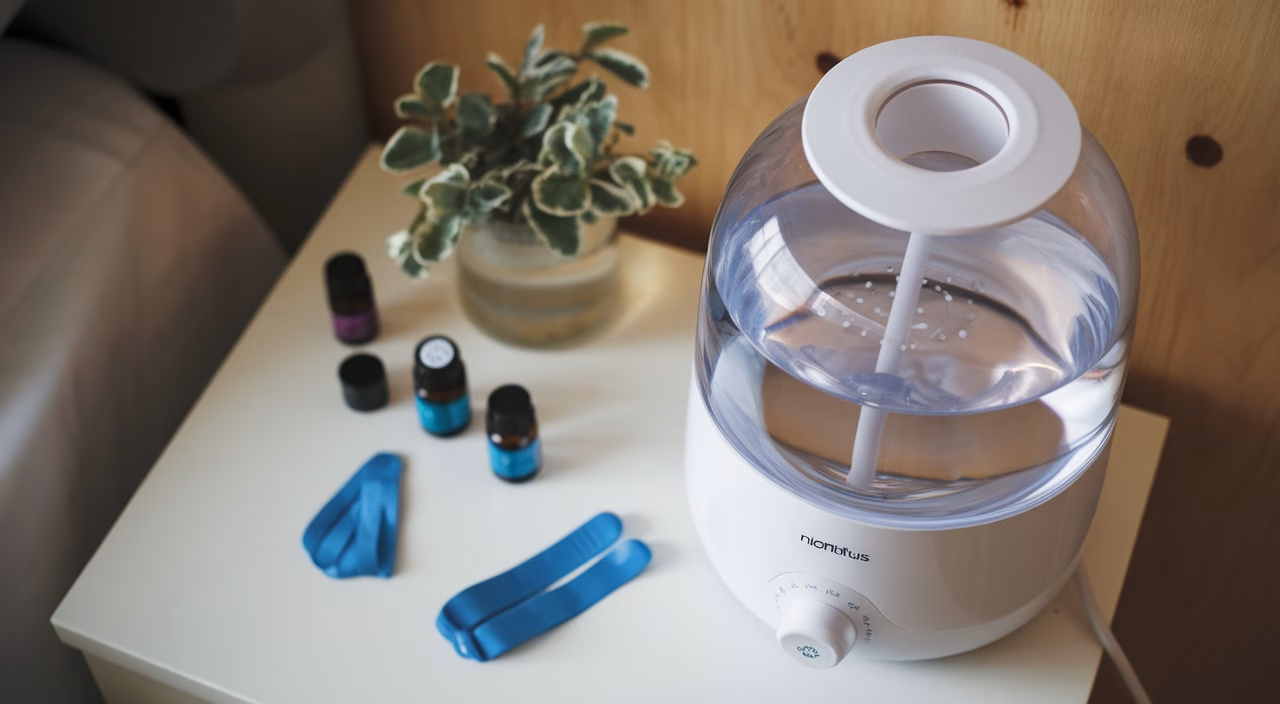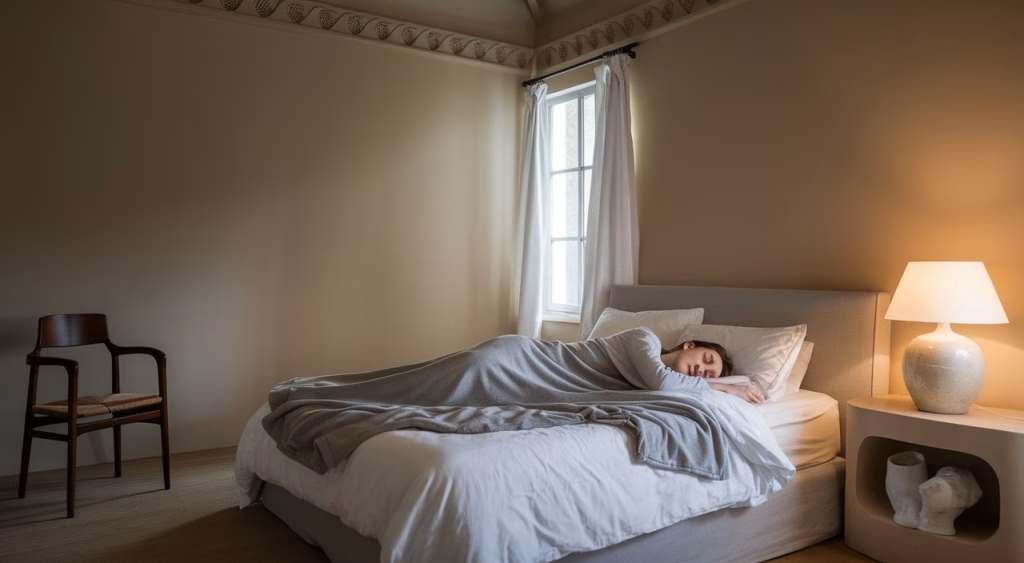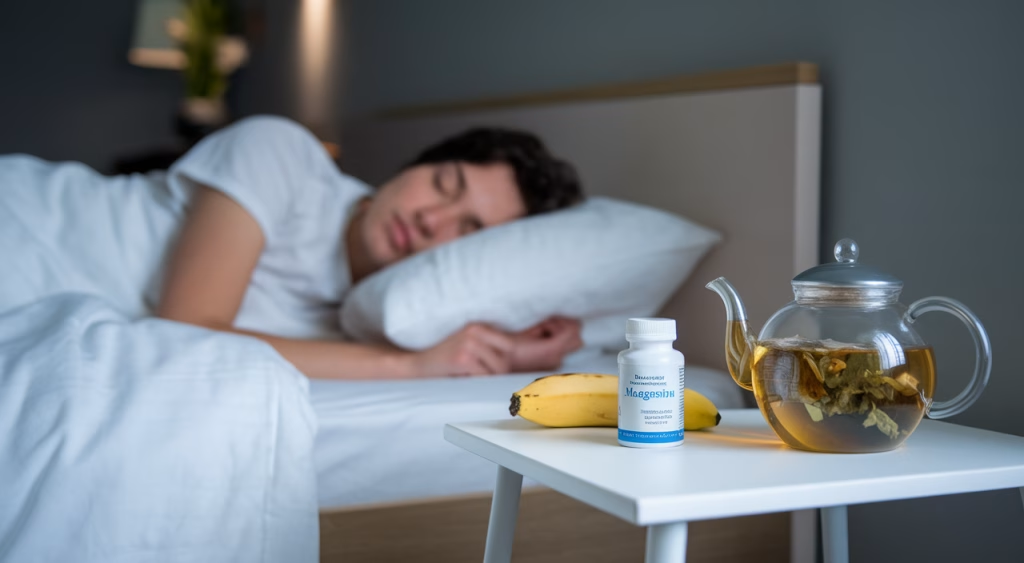How can I sleep next to a snoring partner without sacrificing my health?
Sleeping next to a snoring partner might seem like a minor inconvenience, but it’s far more than just an annoying sound. Nightly disruptions can lead to chronic sleep deprivation, increased irritability, and even threaten your long-term health. Fortunately, with the right strategies and understanding, you can protect your well-being—and possibly help your partner sleep better too.
TL;DR Summary
- Snoring is not just noise—it may signal a breathing problem or obstructive sleep apnea.
- Sleep deprivation from a partner’s snoring can affect your mood, brain function, and immune system.
- Long-term health risks include cardiovascular strain, high blood pressure, and emotional fatigue in relationships.
- Solutions exist—from natural remedies for snoring to bedroom modifications and professional intervention.
- Communication is key—approach the issue with empathy and honesty to protect both health and harmony.
The Impact of Snoring on Partner’s Health
Sharing a bed with a snoring partner doesn’t just cost you a good night’s sleep—it can cost you your well-being. When we consult with couples in sleep clinics, the non-snoring partner often feels the effects just as deeply, if not more, than the one making the noise. Why? Because disrupted sleep isn’t just frustrating—it’s biologically stressful.
Studies show that sleeping next to a snoring partner who snores habitually can cut the quality of your REM sleep in half. REM sleep is essential for memory consolidation, emotional balance, and hormone regulation. Wake up tired, and your entire day becomes harder—your focus slips, emotions run high, and your immune system drags.
If you’re dealing with a snoring partner, you might recognize these symptoms:
- Daytime fatigue despite nominal ‘sleep’ hours
- Decreased tolerance for stress
- Increased irritability toward your partner
- Decline in libido and relationship satisfaction
Let us be clear—the snorer often isn’t to blame. Most don’t even realize how disruptive they are. But recognizing the impact is the first step toward improvement.
Understanding Sleep Deprivation
Sleep deprivation doesn’t happen overnight—ironically, it happens one night at a time. You don’t need to pull all-nighters to feel it. Losing even 60-90 minutes of sleep consistently builds a sleep debt linked to a multitude of physical and emotional issues. Ever wonder why small annoyances feel massive when you’re tired? It’s not just mood—it’s a drained nervous system.
When your sleep is disrupted nightly due to your snoring partner, your body doesn’t get the chance to enter deep, restorative sleep stages. Over time, this leads to:
- Impaired memory and decision-making
- Weakened immune response
- Increased risk of depression and anxiety
- Weight gain due to hormonal imbalance
If you’re wondering whether your nightly uniform of earplugs and frustration is harming more than your patience, the answer is likely yes.
Health Risks Associated with Chronic Snoring
Snoring is often a sign of something more serious beneath the surface—a potential breathing problem during sleep. When soft tissues in the throat partially collapse, air gets forced past, creating vibration: the snore. But when those tissues collapse entirely, breathing stops. That’s when we cross into the territory of obstructive sleep apnea (OSA), which affects millions unknowingly.
| Snoring Severity Tier | What It Could Indicate |
|---|---|
| Light, Infrequent Snoring | Mild airway resistance, maybe due to allergies |
| Loud, Persistent Snoring | Higher risk of sleep apnea or chronic breathing problem |
| Snoring + Gasping or Pauses | Very likely sleep apnea—see physician promptly |
Apnea, where breathing stops temporarily, leads to oxygen dips. The heart pumps harder, the brain wakes you momentarily—often hundreds of times per night. Left untreated, this breathing problem can escalate into:
- High blood pressure
- Increased risk of stroke and heart disease
- Type 2 diabetes
- Liver problems
In essence, both the snorer and the silent sufferer face long-term health consequences. As sleep specialists, we’ve seen lives transformed simply by recognizing snoring’s seriousness.
Tips for Coping with a Snoring Partner
So, what can you actually do about a snoring partner? Here’s how to reduce the nighttime noise and get some rest—starting tonight.
1. Bedroom Strategies You Can Try Tonight
- Use a white noise machine or soothing background sounds to mask your snoring partner’s noise
- Sleep ahead of your partner —the sooner you fall asleep, the less you’ll notice the snoring
- Try sleep positioning pillows to nudge your snoring partner into side-sleeping, which may reduce snoring
2. Natural Remedies for Snoring
- Humidify the air if dryness is causing throat vibrations
- Encourage your snoring partner to avoid alcohol and sedatives before bed
- Explore nasal rinses if congestion is an issue
- Support weight loss if appropriate—it significantly reduces snoring
3. When to Seek Professional Help
If your snoring partner snores loudly and has daytime sleepiness, mood swings, or you’ve noticed pauses in their breathing, it’s time to see a sleep specialist. A diagnostic sleep study can identify underlying conditions like sleep apnea and lead to tailored solutions from oral devices to CPAP therapy.
Cost Guide: Snoring Solutions
| Solution | Cost Range | Description |
|---|---|---|
| White Noise Machines | $25–$70 | Masks ambient noise and snores |
| Nasal Dilators / Strips | $10–$30 | Opens airways mechanically |
| Mouthguards (Non-custom) | $40–$100 | Positions jaw forward, reduces snoring |
| Sleep Study (Diagnostic) | $150–$1000+ | Detects sleep apnea or other disorders |
| CPAP Machine | $400–$1000 | Treats sleep apnea effectively |
Final Thoughts: Prioritize Your Health Without Blame
Living with a snoring partner is tricky—it can feel selfish to bring it up or ask them to seek treatment. But your health matters too. By approaching this with empathy and knowledge, both partners can sleep easier. In our practice, we’ve seen couples reconnect and recharge after finally confronting this ‘silent’ issue. If you’ve been suffering night after night, understand: quality sleep isn’t a luxury; it’s a necessity. Let’s reclaim it, together.
Frequently Asked Questions
What causes snoring in the first place?
Snoring occurs when airflow is blocked in the mouth or nose. Common causes include nasal congestion, being overweight, sleep position, alcohol use, or sleep apnea.
How do I know if my partner has sleep apnea?
If their snoring includes gasping or choking sounds, or they feel excessively tired during the day, it’s worth getting evaluated with a sleep study to check for obstructive sleep apnea.
Are there any natural remedies for snoring that actually work?
Yes, lifestyle changes like losing weight, using a humidifier, doing throat exercises, and avoiding alcohol before bed can help reduce or stop snoring.
Is sleeping in separate rooms a healthy solution?
This is a personal decision. Some couples report improved sleep and happiness this way. Open communication is key to making it a proactive, not punitive, choice.
Can allergies cause my partner to snore more?
Yes, nasal inflammation from allergies can block airflow, increasing snoring. A hypoallergenic environment and nasal treatments may help.
How dangerous is long-term sleep deprivation?
Chronic sleep deprivation is linked to heart disease, diabetes, lowered immunity, and mental health issues. It’s important not to ignore it.
What should I say to my partner about their snoring?
Approach with care. Emphasize how their snoring impacts your sleep and health, and express concern—not blame. Offer solutions to explore together.





